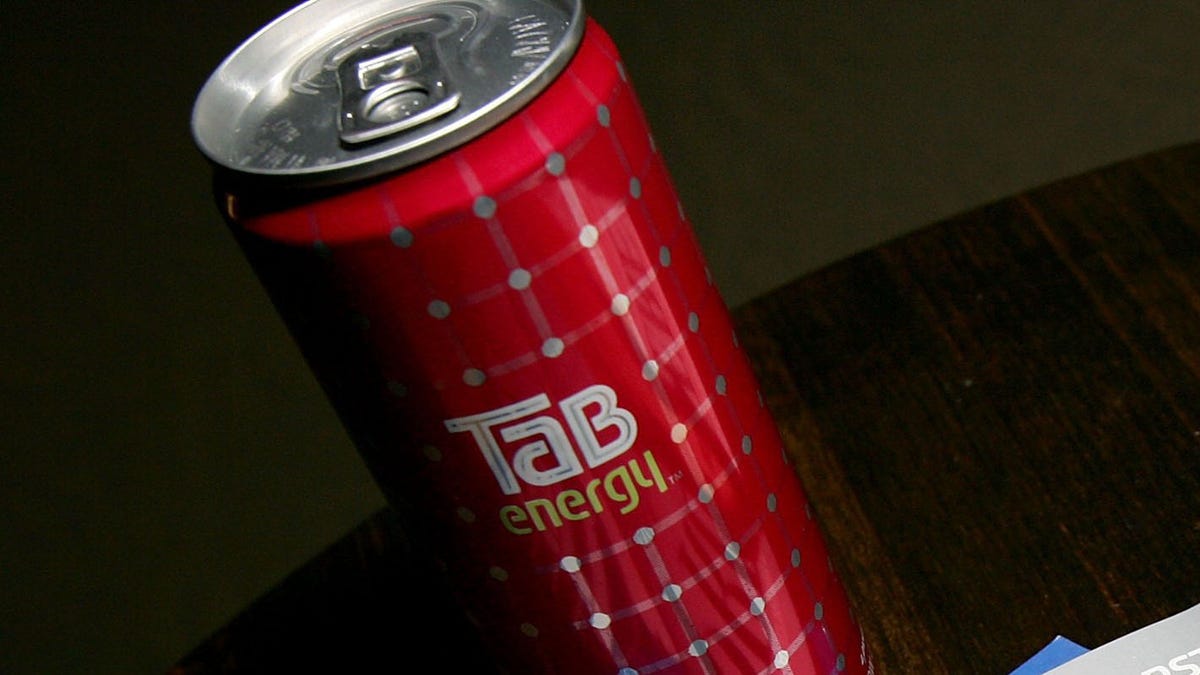
(Photo by Evan Agostini/Getty Images) (2006 Getty Images)
Regularly consuming high-caffeine energy drinks significantly increases the risk of becoming alcohol-dependent and engaging in bouts of heavy drinking, a study published Tuesday found.
The study of more than 1,000 students at a US university found that those who consumed caffeinated energy drinks on a weekly or daily basis drank alcohol more often and in greater quantities, and were more likely to become alcohol dependent than students who used energy drinks occasionally or not at all.
High consumers of energy drinks also had greater risk for alcohol-related problems such as blackouts or missing class because they were hung over, and were more susceptible to self-injury than non- or light users of energy drinks, said the study, led by University of Maryland researcher Amelia Arria.
The study, which was released online ahead of publication next year in the journal Alcoholism: Clinical and Experimental Research, adds to earlier research that found links between heavy energy drink consumption and substance abuse and high-risk behavior.
It comes as debate heated up about the dangers of drinks marketed mainly to young people, which combine both alcohol and caffeine in the same can, which five US states and several universities have cracked down on or banned.
Michigan, New York, Oklahoma, Utah and Washington have taken steps to ban drinks that combine caffeine and alcohol, as have several US universities.
In August, an 18-year old girl went into cardiac arrest and died after drinking a beverage that contained alcohol, caffeine, the stimulant guarana and taurine, an amino acid thought to improve athletic performance. The girl had also taken a slimming pill on the day of her death.
Last month, nine students passed out and were hospitalized after drinking the same brand of caffeine-alcohol cocktail as the girl who died in August.
US Senator Charles Schumer, who has spearheaded a campaign to have stimulant-alcohol drinks banned, said Tuesday that the Food and Drug Administration is poised to rule that caffeine "is an unsafe food additive to alcoholic beverages," which would effectively ban drinks that combine the two.
Alcohol-caffeine mix drinks deliver a caffeine boost equivalent to two to three cups of coffee and a dose of alcohol equivalent to three cans of beer, Schumer said, calling the mix "dangerous and toxic."
Arria and her co-authors on the study noted that youngsters are tending more and more to mix their own caffeine-alcohol drinks, thinking -- wrongly -- that the caffeine, which keeps them awake, is counteracting the effects of the alcohol.
"They're under the misguided notion that they're not impaired when they are just as impaired as a person with the same blood-alcohol concentration. It's their subjective perception of drunkenness that is impaired," Arria told the Associated Foreign Press.
New Screening Guidelines for Cervical Cancer, No More Annual PAP Smear
She welcomed the crackdown by US states and universities on beverages that blend caffeine and alcohol, but said more had to be done to increase public awareness of the dangers of do-it-yourself mixing of the two.
"When states and policymakers act to limit the availability of mixed energy-alcohol drinks, that should send an unequivocal message to consumers and the industry that mixing on your own is risky behavior," she said. "We have the ability to regulate products that are premixed but not to regulate people's behavior."
Nearly two-thirds of the more than 1,000 students interviewed for the study used energy drinks at some time in the past year, and 10 percent consumed them on a weekly or daily basis.
The non-alcoholic but high-caffeine energy drinks deliver the equivalent caffeine dose of a cup and a half of brewed coffee but do not have to disclose their caffeine content on their label.
That could lead to a person ingesting much more caffeine than they thought they were, which could lead to conditions including insomnia, irregular heartbeat, headaches and muscle tremors.
"The other difference between these energy drinks and coffee is that coffee is usually served hot, so you drink it more slowly," said Arria.
For more go to myfoxDC.com
Follow us on twitter.com/foxnewslatino
Like us at facebook.com/foxnewslatino








































